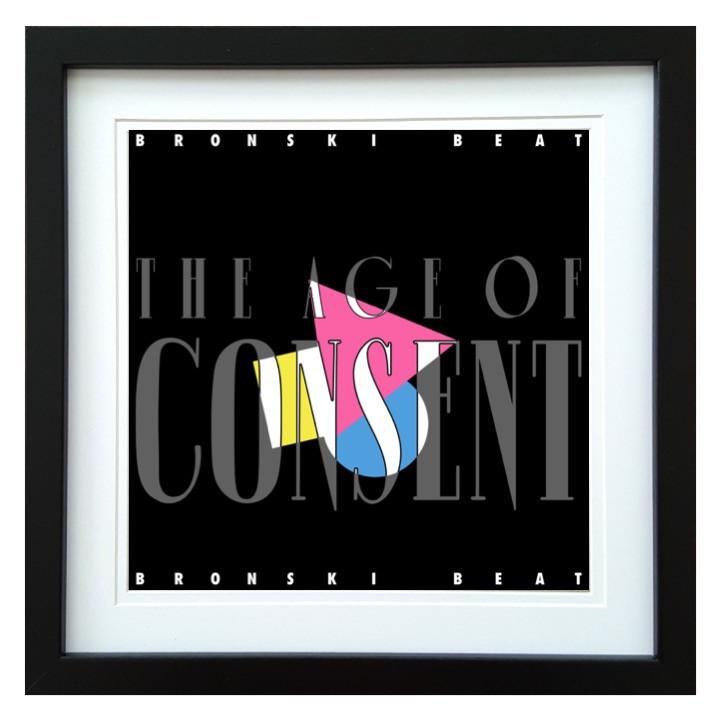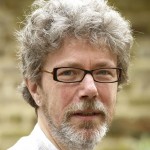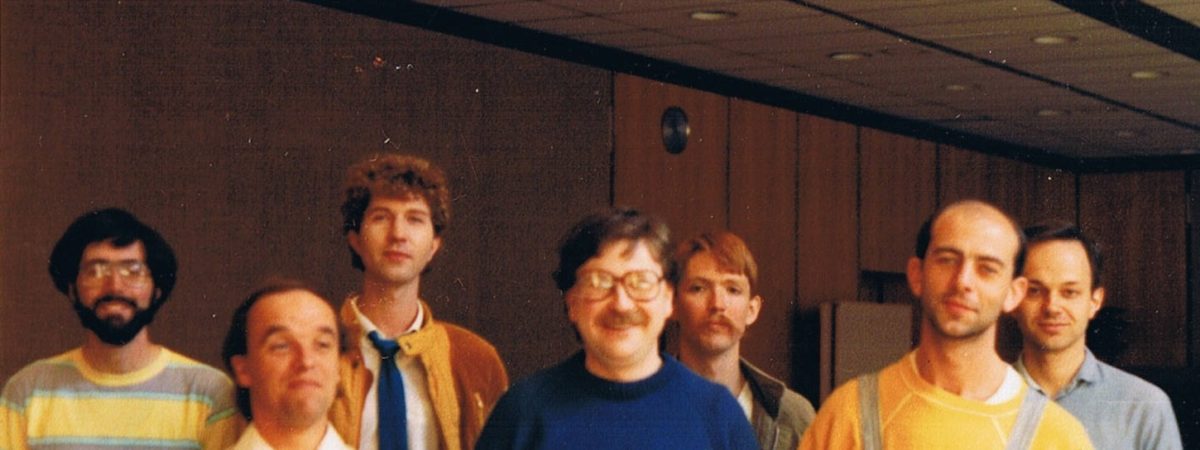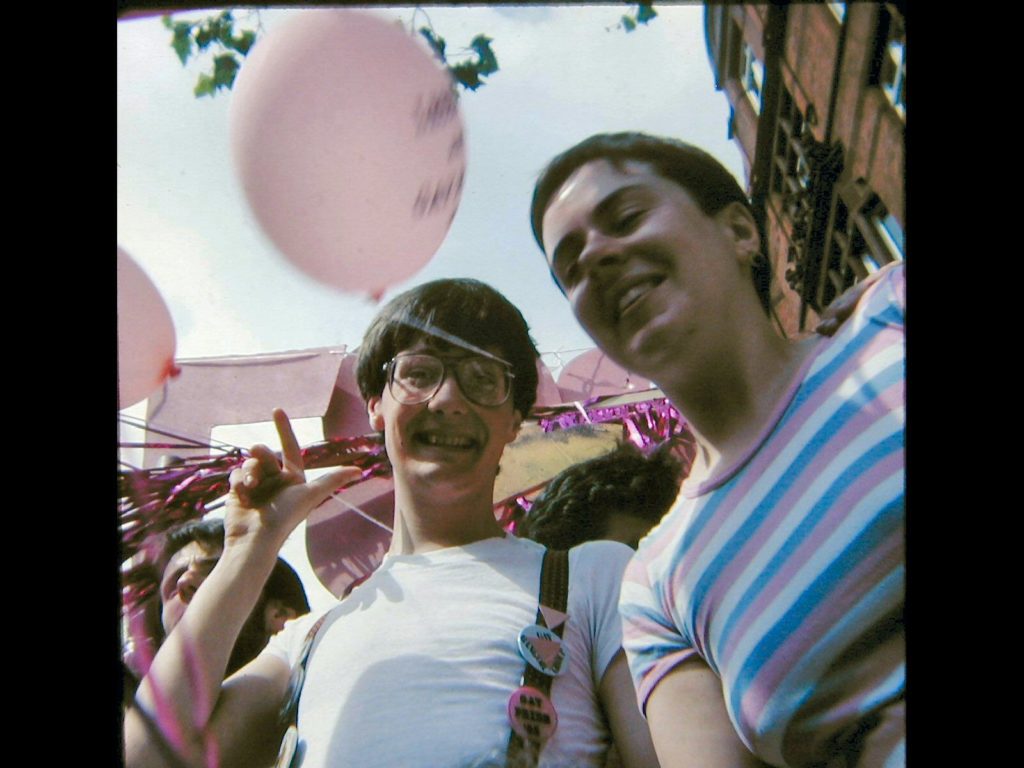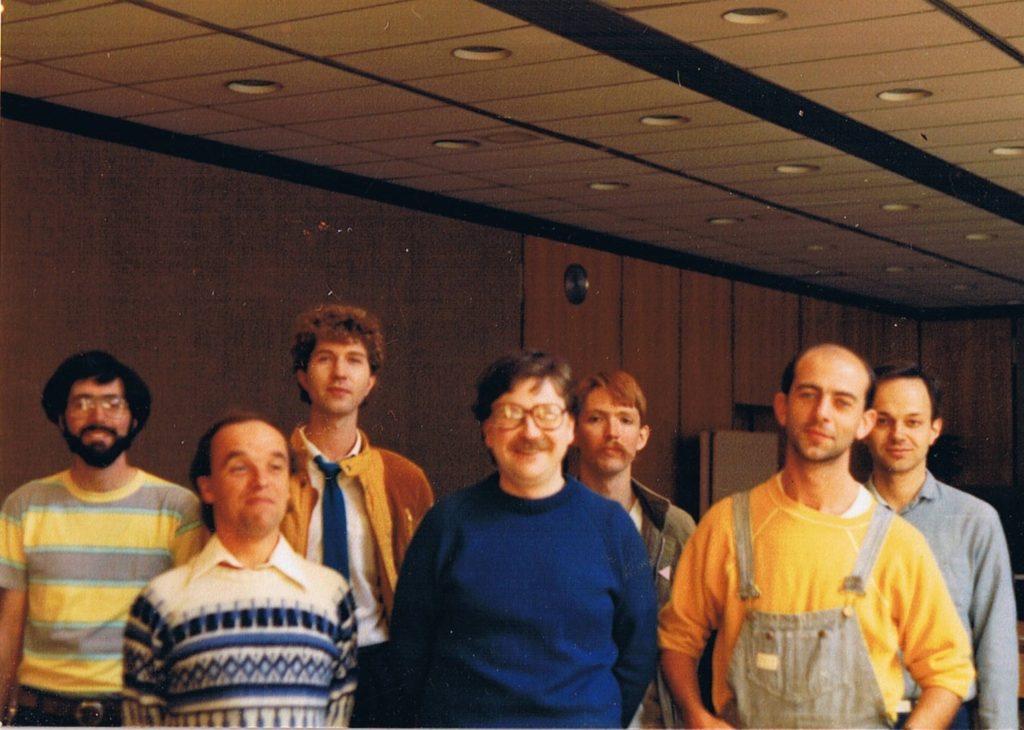Mike Thorne produced the album ‘Age of Consent’, in which the Pink Singers backed Bronski Beat. This was the band’s debut album, written at a time when the age of consent for gay men was still 21 in the UK.
The first part of I Feel Love’s recording was in London, and this was where the cowboys rode into town, twenty of them in the collective posse of the Pink Singers.
This male voice choir with a difference embraced an extraordinary range of character types, from loudly extrovert to painfully shy. Appearance was just as varied. The group couldn’t resist giggling, non-maliciously, at this odd human assortment. The big sound of the resulting layers, the harmonies of which were recorded one at a time sounds quite Volga Boatmen, belying the hot summer night on which it was recorded in an East London basement studio, sounding considerably larger than the recording room.
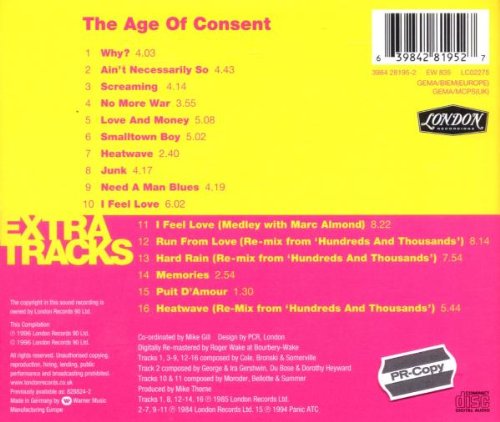
It was hot singing, and hot conducting, leaving persistent memories of sweat on the synthesizer keys that I used to lay out the arrangement. An evening of this melts you, and the air conditioning just gives you up as a bad job. But at the end we had our sound. I broke out the champagne I had sneaked in. We might be an odd collection of differing misfits, and the juice didn’t go far among 25 people, but after all it was showbiz and ceremony is important.
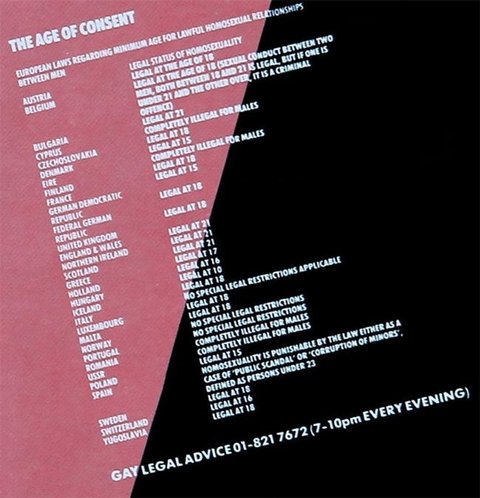
The Pink Singers were even more effective on the other cover on the album, of the Gershwins’ It Ain’t Necessarily So. This is possibly the track which shows off the diverse talents of all concerned, starting with Arno (Uptown Horns) Hecht’s clarinet taking the melody at the beginning. Jimmy’s singing is effortlessly fluid, the more remarkable that he is delivering it on his first album. The harmonized scat sections are flawless, although we would admit that they took time.
You can feel the enthusiasm of the Singers. When they enter in the second verse they sound as if they have just been uncaged, which knocked the track nicely out of being comfortable middle-of-the-road anodyne. They were so anxious and anticipating that it was impossible for them to sing at any level less than raucous, even when humming under the a cappella verse.
Timeline datestamp: 15 October 1984

